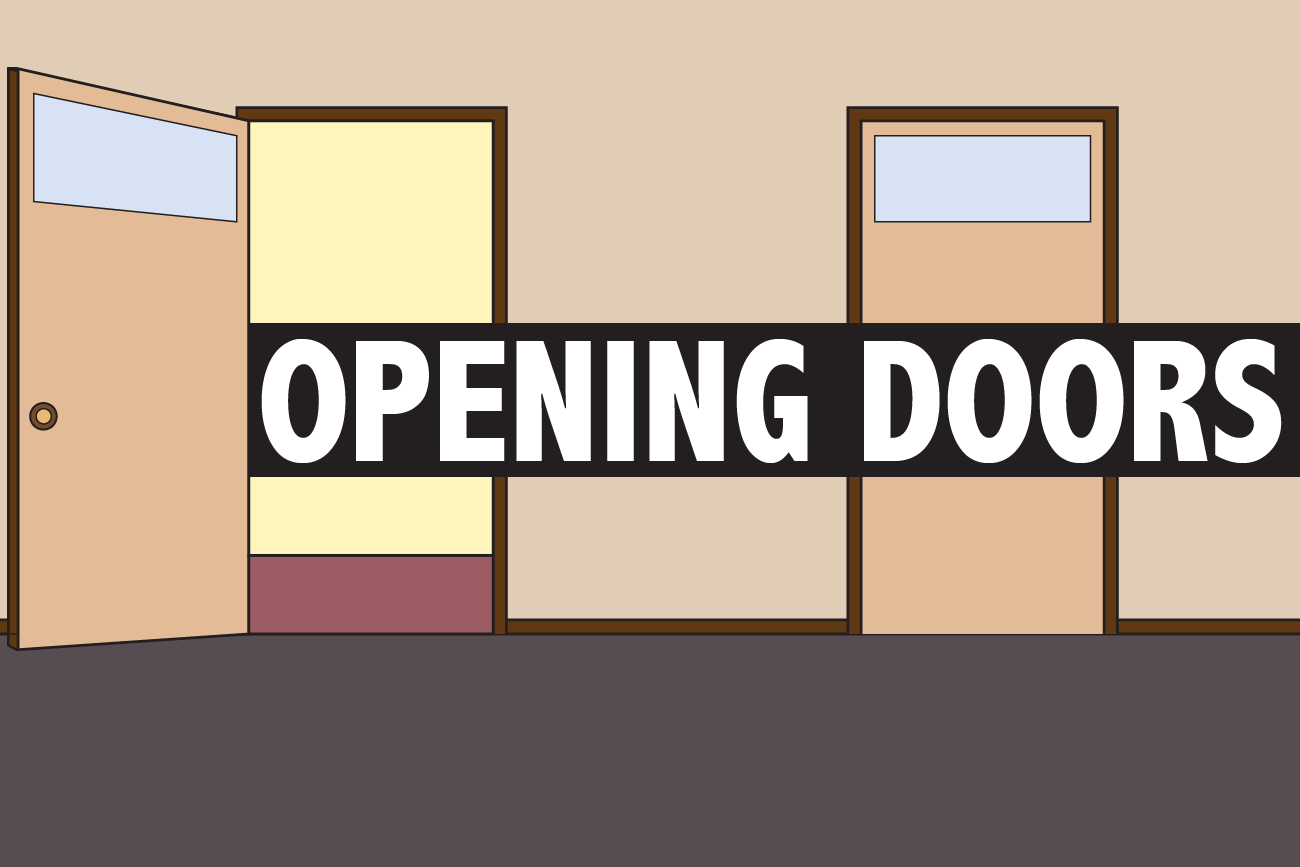In Focus: Student leaders struggle with University’s barrier-free initiative for group admissions
November 15, 2017
A self-described “overachiever,” Weinberg junior Danielle Hojnicki thrived in her high school social scene. As a leader and member of several organizations — National Honor Society, choir, an art club, among others — she always felt eager to pursue her extracurricular interests.
But coming to Northwestern, Hojnicki said the process of applying to student groups differed significantly from her experience in high school. At NU, the extensive application process freshmen go through to get into clubs quickly crushed her eagerness. By the end of her first year, she said she was rejected by half a dozen clubs.
Hojnicki said freshmen often turn to clubs to build strong communities with other students early in their college careers. Not having had this option, she said she doesn’t know what experiences she might have missed out on.
Following feedback on NU’s competitive student group culture, the University proposed a plan requiring groups to adopt open admission policies. Originally announced in spring 2016 by the Student Organizations and Activities office, the initiative aims to improve the first-year experience and increase accessibility by facilitating points of entry into groups.
The plan — later coined The Inclusive and Barrier-Free Student Organization Engagement Initiative — was rolled out in March, SOA director Kourtney Gray said. The initiative defines an inclusive student group as one that has “no extraneous barriers to general membership” and that allows “general members full participation in meetings, events, and other organizational activities.” Administrators previously said clubs not complying with the proposal might lose recognition but have since dropped this consequence.
“Removing applications or making (student group admission) less difficult would’ve been very beneficial,” Hojnicki said. “I probably would have had a different freshman year experience.”
Some student leaders criticized the University’s new direction, saying administrators have not communicated well about the initiative or the extent to which it will affect student group activities.
SOA associate director Tracey Gibson-Jackson said administrators are not trying to enforce a blanket policy on all student groups, but rather encourage new ways for them to promote inclusivity.
“Groups are thinking, ‘Oh my God. They’re putting a policy in place,’” Gibson-Jackson said. “It’s not a policy. … We’re not forcing people to change, we’re just trying to educate students about what some of their peers are saying and about removing some barriers.”
A “mad dash”
Undergraduate students reflecting on their first-year experience with club recruitment said they faced unnecessary barriers to join.
Hojnicki said imposing barriers on admission to student organizations can often detract from an inclusive environment. Additionally, she said, applications and “rush processes” may inhibit students from professional and personal development.
Weinberg junior Emily Ash said student group recruitment can be “terribly intense,” and described it as a “mad dash.” Although she was only rejected from a couple of clubs freshman year, Ash said her expectations of the NU social scene differed from those of other students due to advice from upperclassmen.
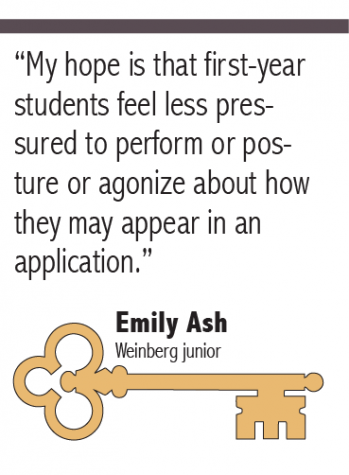 “This competitive nature of student groups was very much part of the student narrative that I got from my older friends,” she said. “They told me it’s a very intense process and that I should be prepared for rejection.”
“This competitive nature of student groups was very much part of the student narrative that I got from my older friends,” she said. “They told me it’s a very intense process and that I should be prepared for rejection.”
Medill sophomore Gabrielle Bienasz, who did not get into the first two groups she applied to last fall, said some of her personal recruitment experiences were “awful.”
During an interview for a club sport team, Bienasz said she was asked whether she liked beer. When she responded no, the student leaders told her she gave the “wrong answer.”
“Certain student groups are more selective than Northwestern itself because the qualifications to get into a student group are so ambiguous and personality based,” Bienasz said.
Hojnicki said freshmen are especially eager to forge new identities in college, and being turned away from student groups often leads to feelings of isolation and issues with self-esteem. She said it can leave students asking, “Why wasn’t I good enough?”
Because first-year students may become organizations’ most committed members, Ash said groups should explore the option of admitting more freshmen. She hopes the barrier-free initiative empowers students to feel more ownership over their first-year experiences.
“My hope is that first-year students feel less pressured to perform or posture or agonize about how they may appear in an application or an interview and focus more on identifying the right groups that they want to prioritize being in,” she said.
Focusing on first-years
Administrators and student leaders have clashed over the initiative’s effect on the first-year experience.
Vice president for student affairs Patricia Telles-Irvin, whose department oversees SOA, said the administration has solicited input from the community to help shape the final initiative.
“We heard from a lot of students, especially first-year students, that it was harder to get into a student organization than it was to get into Northwestern,” she said. “This does not align with one of our principles, which is creating that sense of community and connection and belonging.”
Telles-Irvin added there are several misconceptions about students’ transition to college. While many think freshmen can “make friends right away,” she said the first year can feel “isolating and lonely” — a sentiment only reinforced when students get rejected from numerous organizations every fall.
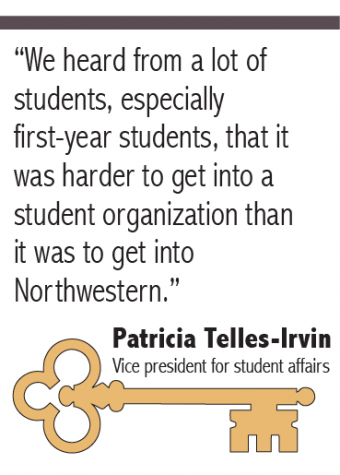 But several student leaders contested this notion.
But several student leaders contested this notion.
McCormick juniors Molly Dudas and Sarah Wong, Mayfest’s co-directors of promotions, acknowledged NU’s competitive culture but identified several problems with admitting more members into their group. Mayfest — which puts on Dillo Day every spring — is composed of 80 students, making it already feel “like a large club,” Dudas said.
She added that growing Mayfest’s general membership board, where most first-year applicants are placed, may dilute the communal experience due to a lack of responsibilities. General members typically shadow Mayfest committees and assist with various tasks.
“Shadows alone jump into the committee and don’t have that many jobs to do,” Dudas said. “If there are more shadows, there are less jobs and you don’t get your feet as wet.”
Communication senior Andrew Restieri, co-chair of The Waa-Mu Show, said it is necessary for some groups to not have total open admission. Waa-Mu — which puts up an annual student-written musical — holds auditions for its cast and interviews for its executive leadership.
But Restieri said the group also offers an avenue with no barriers to enter, letting students assist on the artistic and business teams. Around 200 students are involved in the production of the musical.
Restieri said it’s important that Waa-Mu allows for general membership — as it can be difficult for freshmen to get involved with student theater — but that this may not apply to other organizations. He added that learning how to overcome rejection is an essential part of the college experience.
“There’s a lot of real-world preparation in facing rejection, and I don’t necessarily think facing rejection is a bad thing,” Restieri said.
Implications of being “barrier-free”
In addition to diluting the freshman experience, the initiative has divided administrators and student leaders over its effects on attendance and engagement with clubs.
Though the initiative’s guidelines allow for applications and interviews to determine leadership roles within an organization, these barriers should not be prerequisites for general membership.
Gray, the SOA director, said creating a general membership group in clubs is “basically the whole initiative,” a comment that was met with criticism from some student leaders.
Weinberg senior Maddie Parrott, president of the Institute for Student Business Education, said the group receives 200 to 300 applications during its fall and spring recruitment cycles. Out of all the applicants, the group admits around a third each year to maintain a roughly 300-member body.
ISBE members are immediately staffed into projects within eight subgroups, which Parrott said has helped “keep students engaged from the get-go.” Creating a general membership board would largely shift their day-to-day operations, she said.
Parrott believes ISBE could “slim down” membership even more to make sure students remain active and accountable in the organization to “produce the output we want.”
“When you have large groups of people … it can be very easy to sit back and have other people work for you,” she said. “If you cram people into the organization, you can hit a limit.”
Leaders with open group policies expressed a similar view. Weinberg junior Calvin Anderson, co-president of College Democrats, said it can be difficult to maintain high involvement because the group doesn’t enforce strict attendance policies. While some 900 students are on its email list, Anderson said only 20 to 30 are “super involved.”
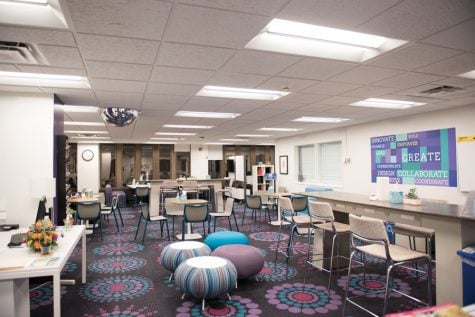
Norris University Center’s SOURCE is a multipurpose space where student groups can access resources. Several student leaders have contested the University’s initiative to remove barriers in their admission processes.
Weinberg freshman Hannah Mandell, who joined College Democrats and plans to remain an active member, said it’s important for leadership to consistently track student involvement.
“I went to the first meeting and then the second one, and there was a huge drop off with attendance,” Mandell said. “It’s really important for (the presidents) to keep track of who’s actively involved so that those people get preference for special events.”
Gray said student leaders should “get creative” to maintain attendance and engagement.
“The students who aren’t fully engaged, they will fall off and won’t return,” he said. “But how do you know until you give them the opportunity? What are the ways you can empower your fellow student?”
Several leaders also stressed the importance of having an application process to admit new members. Studio 22, a filmmaking group of 12 board members, asks applicants to fill out a packet and come in for an interview to share their ideas.
Communication junior Megan Ballew, co-president of Studio 22, said applicants have to be motivated to both fill out the extensive packet and discuss their interest in filmmaking with board members.
“In certain communities, you feel a sense of camaraderie because you all have passion and talent that someone saw in you and chose you for this group,” she said.
Ballew added that general membership may promote a culture where students get into organizations to pad their resumes. Allowing these members into the group would be “very disappointing,” she said.
“It’s hard enough when you have applications and you’re working with people who’ve said, ‘I’m passionate about this organization’ … and then they get into the organization and they’re not,” she said. “With open admission, this would be even more of an issue.”
Weinberg freshman Anna Derrick, who wasn’t admitted to the ski and sailing teams, said first-year students “pick and choose” what activities they’re involved in after they settle into their academics.
Derrick said this makes the student group culture less competitive in the long run, as students may find it more difficult to balance a rigorous social calendar with school work.
In an October interview with The Daily, University President Morton Schapiro said groups shouldn’t encourage students to sign up just to reject them later on in the application process.
“My heart breaks when I meet students who come here and they’re just told ‘no,’” he said.
Struggling to communicate
Before coming to NU in spring 2016, Gray said students, Associated Student Government and staff were already talking about making the student experience more inclusive.
Re-registration data from more than 340 student groups in the past two years indicates that roughly 85 percent of these groups report having “some screening process, fee, or barrier” to student engagement, according to the Student Affairs website.
Additional SOA data shows that 85 of 358 campus organizations do not identify with the barrier-free definition designed by the office, which asks groups have no “extraneous” barriers to general membership.
Gray said the SOA team met with more than 40 organizations that self-reported having barriers to brainstorm changes they could implement to improve their application and member selection processes. Originally, the office planned to meet with all University-recognized groups to discuss inclusivity. In Winter Quarter, Gray said it selected 90 representative clubs for this purpose.
“It was never done solely from the administrators’ point of view,” he said. “Student voice was consistently (present) through all of it … to craft the actual definition and get it out.”
From October until March last year, SOA created the barrier-free definition and supported the initiative’s launch via various student and administration channels — including ASG and the Division of Student Affairs.
Although Gray and Gibson-Jackson said they have maintained a working relationship with ASG on the initiative since Spring Quarter, ASG President Nehaarika Mulukutla told The Daily in an email she has not been personally working with administrators on it.
ASG Senate introduced a resolution in May 2016 that would disavow the proposal to push exclusive student groups to open their doors to all. The resolution, sponsored by seven ASG members and signed by nearly 50 student leaders — among them members of ISBE, Studio 22 and two club sports teams — was tabled.
Former ASG President Christina Cilento (SESP ’17) told The Daily in an email that the resolution was tabled indefinitely after the Office of Campus Life decided to collect more student input on open admission policies.
Referencing students’ mixed reactions about the proposal, Mulukutla also said the office “almost completely” went internal to reformulate and create the initiative in a manner that wouldn’t receive that “backlash.”
Brent Turner, executive director of Campus Life, deferred comment to SOA. Gray and Telles-Irvin said the initiative has not come up during either administrator’s bi-monthly meetings with ASG.
Medill senior Alecia Richards, ASG’s vice president for student activities, said her committee is working on projects to promote equality on campus. Her committee is focusing on building better connections with marginalized groups in organizations and making ASG more accessible to the student body.
Richards also said ASG’s efforts may not necessarily run in conjunction with the administration’s barrier-free initiative.
“I’m confident that ASG is making strides toward student group inclusivity, but we may not be calling it the same thing the administration is calling it,” she said.
Administrators have struggled to inform student groups about the initiative. Last year, Gray said he met individually with 11 organizations, including Mayfest, and held some roundtables targeted at groups with barriers. Later, his office presented the initiative to the rest of the groups at the Student Organization Symposium during Spring Quarter.
Gray said SOA is currently looking to further publicize and explain the initiative through social media and email blasts.
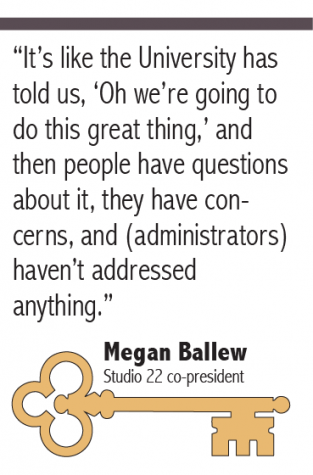 Weinberg senior Ben Zimmermann, chair of Contemporary Thought Speaker Series, said he and Gray have had regular meetings to discuss making CTSS more inclusive.
Weinberg senior Ben Zimmermann, chair of Contemporary Thought Speaker Series, said he and Gray have had regular meetings to discuss making CTSS more inclusive.
However, Ballew — the Studio 22 co-president — along with many other student leaders said they had not heard anything new about the initiative since last year. Ballew added that the administration is responsible for starting a conversation about the guidelines.
“It’s like the University has told us, ‘Oh we’re going to do this great thing,’ and then people have questions about it, they have concerns, and (administrators) haven’t addressed anything,” Ballew said.
A shifting mission
Since the initiative was first announced in spring, many student leaders have challenged their groups’ engagement barriers and are adopting a more inclusive mindset.
Weinberg junior Jonathan Jen, co-president of the Chinese Students Association, said the group saw many changes over the year partly as a response to the original open admission proposal. He said the current executive board is the first to feature two inclusion chairs, who oversee programming to make events more accessible to general members.
Moreover, Jen said the board will be more proactive in planning its social and cultural events so that every level of programming targets the entire group. In addition, he said more events will be open to the entire NU community.
Through discussions with Gray and the SOA office, Zimmermann — the CTSS chair — said the group is adopting the barrier-free concept by increasing co-sponsorships of its events and collaborating with more diverse student groups.
Last year, CTSS organized a poll for the first time to get further input from undergraduates, which Zimmermann said allowed the organization to engage with more students.
“The point (of the initiative) is not to open the flood gates and let anyone join any student group,” he said. “You’re trying to make more people have voice at the decision-making table.”
Mayfest is striving for inclusivity by not limiting itself to one type of applicant, said Dudas, the group’s co-director of promotions. Dudas added that the organization tries to recruit diverse majors and music tastes in its membership by attracting a variety of applicants.
The group also plans to make the interview process more transparent to help applicants understand each committee’s responsibilities, Dudas said.
However, other organizations foresee difficulties adapting their operations in response to the initiative.
ISBE — which receives funding from corporate sponsorships and ASG — would likely not change the way it allocates its resources with a larger membership, Parrott said. Currently, the group allocates its budget in a more “ad hoc” manner, she said, with the president and treasurer having regular meetings to avoid major deficits.
Parrott said ISBE receives “regular pushback” from ASG regarding the group’s inability to obtain A-status recognition, which would make it eligible for more funding. Additional expenses resulting from a general membership board would likely not be covered by the student government, she said.
For example, ASG would not cover costs related to food and catering that more bonding events would generate if the organization grew, she said.
“It’s hard to operate a group with limited funds when you don’t feel supported by your university,” Parrott said. “It hasn’t felt like they’re super engaged from a student group perspective.”
Ballew said Studio 22 — which receives financial support from ASG and the Department of Radio, Television and Film — would avoid planning more events because there isn’t demand in the NU community.
She added that over-programming can be “a waste of money,” especially if it only stems from a need to assign projects to more members. Ballew said the RTVF department has faced challenges about the number of events it holds, with some of them being expensive but ill-attended.
“Studio 22 in some ways is like my baby,” Ballew said. “I want us to get stuff done, I want us to be a positive influence in the RTVF community. If someone on the board … doesn’t feel like they have much to do or doesn’t feel like they’re making a difference, that would hurt my heart.”
Searching for solutions
Ballew said the administration needs to be more active in collecting feedback from student leaders because the University may have only considered the issue from the perspective of students who keep getting rejected from clubs.
Schapiro and Telles-Irvin both said they will discuss the barrier-free initiative with their senior staffers and ASG to further examine its implications on student groups.
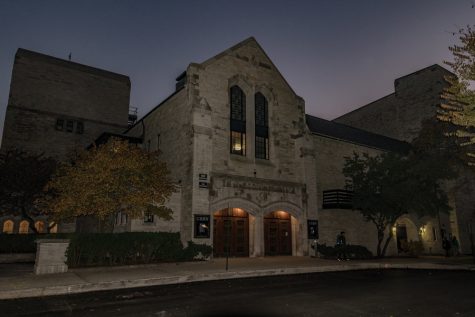
Cahn Auditorium, where the Waa-Mu Show holds its annual musical. Communication senior Andrew Restieri, a Waa-Mu co-chair, said the group offers an avenue with no barriers to enter by letting students assist on the artistic and business teams.
The SOA office is planning more outreach events to educate students and staff on the initiative, as well as a second round of one-on-one meetings with organizations that limit entry, SOA associate director Gibson-Jackson said. She added that she invites group leaders to meet with her office to discuss ways they can promote inclusivity.
“This is not our office talking,” she said. “This is direct from your peers saying, ‘This is hard. This needs to change. We don’t like how this feels and we can’t be involved.’”
In an effort to incentivize the adoption of more inclusive approaches to admission, SOA has developed projects to further engage the student community.
Many of the conversations Gray, the SOA director, had with freshmen and student leaders concluded with them expressing a need for money to support inclusive processes, he said. Whether these funds were allocated for training members or reducing entrance fees, Gray said a lack of resources was a common barrier across many organizations.
SOA is planning a new system to merge three existing funds already offered by the office into a single grant program that encourages more access for student-led initiatives. Gray said the office has earmarked about $10,000 toward this new system, which is set to launch this week.
In an effort to showcase positive aspects of the initiative, Gibson-Jackson said administrators will not penalize student groups for ignoring the guidelines. As the process of organizational recognition is filtered through SOA, she said the office will not threaten groups with the possibility of losing recognition.
Gibson-Jackson added that all students deserve to have a positive NU experience, a value she hopes campus groups of all sizes begin to internalize over time.
“Change doesn’t happen overnight,” she said, “but if we keep working on these little changes, it will eventually change the culture. And honestly, the students have been asking for this.”
Email: [email protected]
Twitter: @stavrosagorakis

